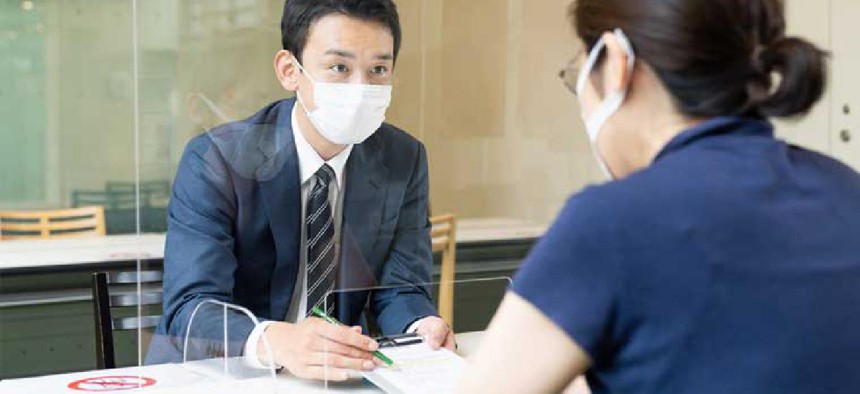NJ offers in-person ID verification for online services

The New Jersey Department of Labor and Workforce Development is rolling out a new service that allows individuals -- even those without a mobile phone or dedicated internet access – to verify their identity at retail locations.
The New Jersey Department of Labor and Workforce Development (NJDOL) is rolling out a new service that allows individuals -- even those without a mobile phone or dedicated internet access – to verify their identity at retail locations so they can access online government services, including applying for unemployment insurance (UI).
The state is working with ID.me, a digital identity network provider, and Sterling Check Corp., which provides background screening and identity services at retail facilities across the U.S. The solution will ensure those without a smartphone or reliable online access can digitally verify their identity by visiting a designated retail location.
ID.me typically verifies that individuals are who they say they are by having them take selfies or asking them to appear on video and checking to make sure their faces match the photos on identity documents used to apply for benefits. Those without smartphones can now be verified at a Sterling Check locations.
Once individuals verify their identity in person, they get an ID.me credential that allows them to access a range of government services. ID.me is used in California, Florida and 25 other states as well as by the Department of Veterans Affairs, the Social Security Administration, the Department of Treasury and hundreds of other organizations.
"Enhancing our ability to verify individuals through ID.me with the addition of in-person channels enables us to more effectively reach those who, for whatever reason, had trouble doing so online without compromising trust and security," NJDOL Commissioner Robert Asaro-Angelo said.
In March, the department contracted with ID.me to provide multifactor identity verification services to more efficiently authenticate the identity of certain unemployment claimants. Those who were contacted by NJDOL could verify their identity by providing common pieces of ID through a computer, mobile phone or live video conference session with a trained, vetted representative.
Besides making it easier for individuals to verify their identity, the use of ID.me may be reducing unemployment fraud.
In April, ID.me CEO and founder Blake Hall said that as much as $400 billion may have been lost to UI fraud. He based his estimate on the “precipitous drop-offs in new claim applications that states have experienced after implementing ID.me verification,” ProPublica reported. In New York, he said, new claims for Pandemic Unemployment Assistance fell by 89% after ID.me went live. Plus, more than half of people who filed for UI benefits didn’t even try to confirm their identities when asked to do so, he added, citing data from five states the company has worked with.





